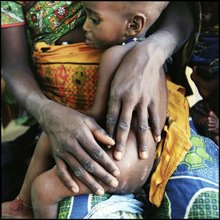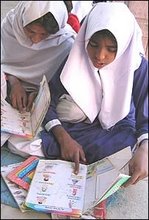PREAMBLE: A decade ago, the Global Forum for Health Research observed that only 10% of worldwide expenditure on health research and development is devoted to the problems that primarily affect the poorest 90% of the world's population.[1] Step by step this situation is transforming: the quantity and quality of research from emerging economies is growing, while knowledge synthesis is becoming steadily more collaborative and global in scope. Another epiphany also has emerged: lessons from developing countries are of value to developed ones.
Earlier this year, illustrating a positive trend in research capacity development in developing countries, the Global Journal of Medicine and Public Health was launched, honouring the principle that medical and public health practices must be appropriate to the settings where they are applied.
As noted in the inaugural editorial [2], most established journals sustain their scientific rigour by serving known investigators in developed countries. By contrast, new entries open up participation so that, research and practice that is more sensitive to varying social, cultural and economic conditions around the world, has a fairer chance of being disseminated.
Disclaimer: Our decision to devote this issue of PacificSci Global Perspectives to the Global Journal of Medicine and Public Health (GJMEDPH) is consistent with our pro bono support for this venture, for which Franklin White (President, Pacific Health & Development Sciences Inc.) serves as Executive Editor. This piece is not an official statement by the journal, and the opinions expressed are those of the writer in support of this initiative.
GLOBAL JOURNAL OF MEDICINE AND PUBLIC HEALTH
Note: The following material was re-edited on April 11, 2013 to accurately reflect the location of the GJMEDPH editorial office.
The Global Journal of Medicine and Public Health (GJMEDPH) is a peer reviewed journal with an internationally diverse editorial board, coordinated by Editor in Chief Dr SM Kadri, with editorial offices in Srinagar, India. As an open access journal, it is committed to rapid, low cost and accessible publication of relevant articles.
Journal Policies and Issues to date may be accessed via the URL in the Invitation at the foot of this article.
The types of article accepted include original manuscripts, review articles, case reports, and letters to the editor. Emphasizing prevention and control of conditions that are important in terms of public health as well as clinical impact, its scope includes attention to the underlying determinants and related social and environmental approaches, not only clinical interventions. The Journal also features a continually updated column on News Around the World.
With balance and objectivity, GJMEDPH defers to authentic experience. It aims to stimulate debate on how medicine and public health can synergize to address globally important issues.
It also represents an investment in health research infrastructure for development settings.
For example, recent decades have witnessed a big push to promote “best practices”, mostly driven by the science base of developed countries. Related to this, legitimate questions arise about the kind of evidence needed to determine the relevance of their adoption in other settings. When such questions arise in western countries, they are put to the test through replication research to determine their applicability. By contrast, western best practices are typically adopted in developing countries uncritically, often as an extension of western training, even though conditions may be very different, and locally developed approaches desirable.[2]
GJMEDPH thus represents one new investment in the developing research infrastructure that is aimed at closing this gap. This will help implementers better understand how the complex array of contextual factors, such as politics, socio-cultural norms and beliefs, and the fiscal environment, can influence everything from replicability and adaptation to potential scale-up success.[2,3]
Because of the inevitable lag between evidence and action, all too often decision makers are not necessarily well versed in new approaches. GJMEDPH therefore encourages dissemination of research findings in ways that are policy-relevant.
The journal, which has already published three bimonthly issues in its first year, is now included in Index Copernicus and Ulrich's Periodicals Directory, the standard library directory and database providing information about popular and academic magazines, scientific journals and other serial publications. It aspires to be included in Index Medicus, once those criteria are met.
Invitation
Readers may visit the CURRENT ISSUE of the journal at: http://www.gjmedph.org/Current.aspx
Consistent with its mission, GJMEDPH welcomes submissions from anywhere in the world.
REFERENCES
1. Global Forum on Health Research. The 10/90 report on health research 1999. World Health Organization. Geneva. 1999.
2. White F. Launching the Global Journal of Public Health (inaugural editorial) GJMEDPH, 2012; 1(1) 1-2. http://www.gjmedph.org/uploads/Editorial.pdf Accessed August 15, 2012.
3. Yamey G. Scaling Up Global Health Interventions: A Proposed Framework for Success. PLoS Med 2011; 8, 6: e1001049. doi:10.1371/journal.pmed.1001049 http://www.plosmedicine.org/article/info:doi%2F10.1371%2F journal.pmed.1001049 Accessed Aug 15, 2012.
FROM a Great Canadian and World Statesman
"A great gulf... has... opened between man's material advance and his social and moral progress, a gulf in which he may one day be lost if it is not closed or narrowed..."
Lester B Pearson
http://nobelprize.org/nobel_prizes/peace/laureates/1957/pearson-lecture.html
Wednesday, 15 August 2012
Subscribe to:
Comments (Atom)
INSPIRATIONAL WELCOME ............................... from T.S.Eliot's "Little Gidding"
If you came this way From the place you would come from... It would be the same at the end of the journey...
If you came, not knowing what you came for, It would be the same... And what you thought you came for Is only a shell, a husk of meaning... From which the purpose breaks only when it is fulfilled If at all.


























